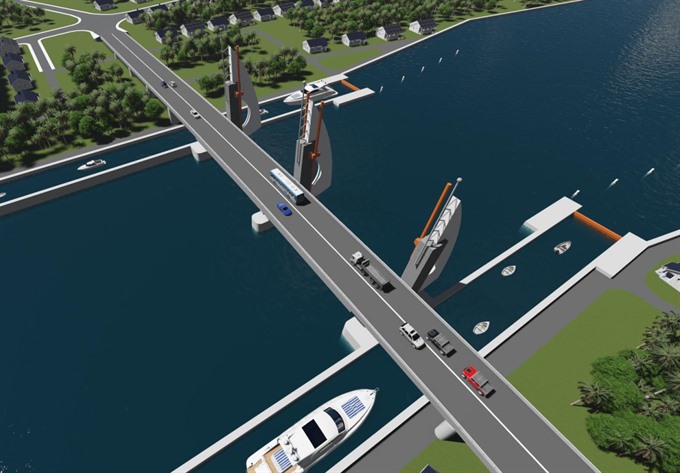 Society
Society

The Japan International Co-operation Agency yesterday signed an agreement with the Government of Việt Nam to provide loans of up to 24.2 billion yen (US$216 million) for a water management project in the southern region.
 |
| An illustration of the system of sluice gates to prevent saline intrusion under a Japanese-funded water management project in Bến Tre Province. — Photo courtesy of JICA |
HÀ NỘI — The Japan International Co-operation Agency signed an agreement with the Government of Việt Nam to provide loans of up to 24.2 billion yen (US$216 million) for a water management project in the Mekong River Delta region today.
A Japanese Official Development Assistance package will help install a system to control saline water intrusion in the southern province of Bến Tre, a region suffering severe saline damage.
Once completed, the project will ensure low salinity water supply for crops irrigation, increase agricultural productivity, adapt to climate change, protect environment and develop production. Therefore, it will contribute to improve the lives of local people.
The Mekong River Delta is a major Vietnamese agricultural hub, supplying more than half of the country’s agricultural products. Bến Tre is a very developed province in the region, with key cultivation plants including rice and fruits such as coconuts, oranges and lemons.
As agriculture currently makes up 44 per cent of the province’s GDP--higher than the the national average of 18 per cent--the sector plays a key role in the province’s socio-economic development.
However, in recent years, due to the impacts of climate change, the Mekong River tributaries have been hit by saline intrusion. This has caused serious damage to agricultural production and cultivation. Low salinity tolerance has reduced crop yields significantly.
In 2015, for example, the damage caused by saltwater intrusion was approximately VNĐ1.5 trillion ($65 million).
To overcome the situation, the province vowed to take all measures to prevent the saline intrusion including a project to set up a system on controlling saline water intrusion.
The project is expected to become operational in October 2022. — VNS




